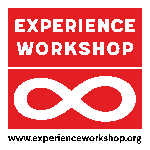Course description
The course operates with a twin-track approach. On the one hand, different teacher roles and their applicability in the context of 21st century challenges will be discussed. On the other hand, participants will examine the adaptability of their findings to their own teaching practice, while self-reflectively mapping creative skills and competences and the directions in which they would like to develop. All this is supported by concrete practical ideas and up-to-date scientific research.
The course will cover issues such as how teachers can increase students’ skills and competences to work with others, to self-manage, to take responsibility for their own studies.
While we actively discover these fields, we become familiar with the versatile competence sets that form the basis of Finnish education, such as thinking and learning to learn; taking care of oneself and daily life; cultural competence, interaction and expression; multiliteracy; working life competences and entrepreneurship; participation and involvement.
The course content is created by experts of Finnish educational research, teacher education and professional development in Finland.
Basic information
⇒ Working language: English (minimum level required: B1)
⇒ Working hours: 25/30 hours
⇒ Venue: Jyväskylä, Finland
⇒ Prices:
- 6-day course: 580 EUR
⇒ Currently available course dates:
There are no announced dates currently. If you are still interested in the course, please contact us (info@experienceworkshop.org).
Who is this training for?
Objectives and learning outcomes of the course
About the location
Methodology
Reference programme of the 6-day training
Certification awarded
Important to know
*
Who is this training for?
The training is recommended for
- pre-service educators
- in-service educators
- school principals and
- education professionals
who want to learn about the future teacher’s role in the 21st century. The teacher’s role as a mentor is one of the most essential elements of modern pedagogical approaches. Being a precondition for preparing students for 21st century skills, it is deeply embedded in the Finnish education system.
⇒ The goal of the course is not simply sharing information, but supporting participants in adapting the course content for their own educational system, curricula and everyday practices. want to learn about the essential elements, pedagogical and organizational background, and good practices of the Finnish education system, which has world-wide high achievements.
Objectives and learning outcomes of the course
Participants will:
- become aware of the most relevant 21st century skills by developing a deep understanding of the goals, educational and methodological strategies which seem to be the most relevant in the development of students in the 21st century.
- be able to identify relevant elements of the above-mentioned principles, strategies, approaches and tools in relation to their own teaching practice.
- be able to identify those teacher attitudes and roles that help students towards learner autonomy. Different methodological tools will be introduced that will help teachers build up their own mentoring role and develop a cooperation-based relationship with students.
- find their own ways to adapt and implement the appropriate approaches and tools in their own classroom.
- be able to create their own portfolio and/or lesson plans using a variety of suggested approaches and tools.
- become more self-confident in their role as a teacher and in building trust-based relationships with their students and colleagues.
- improve communication skills and soft skills in English and develop language for classroom use and planning.
- develop their professional skills through interacting with colleagues of other nationalities, exchanging ideas, materials and experiences.
- develop their international professional network which will enhance their motivation in teaching.
About the location
The capital of Central Finland, Jväskylä is the cradle of teacher education, an important pillar of Finland’s prestigious education system. The first teacher training institute in the country was established here at the end of the 19th century, and the University of Jyväskylä has since become a stronghold of Finnish teacher training and methodological education.
Methodology
Supervisor of the course is Ph.D. Kristóf Fenyvesi, senior researcher of University of Jyäskylä. The course is delivered in close cooperation with his invited colleagues. Dr. Fenyvesi’s research interests are overarching the main highlights of the Finnish educational system, such as STEAM (Science, Technology, Engineering, Arts, Mathematics) education, creativity & innovation in learning, trans- and multidisciplinary integration in learning, problem-solving, playfulness, phenomenon-based, experience-oriented, and cooperative approaches in education, hands-on approaches and digital modelling, embodied learning, etc. The training draws on all these approaches and, keeping in mind the principle of learning by doing, always aims to put participants in active situations so that they themselves can learn through experience. The course is a fine result of up-to-date scientific research and evidence-based practice. As part of the training we will give you a comprehensive insight into the Finnish Core Curricula and educational practices.
Reference programme of the 6-day training (30 working hours)
| Day 1 |
|
||
| Day 2 |
|
||
| Day 3 |
|
||
| Day 4 |
|
||
| Day 5 |
|
||
| Day 6 |
|
||
While keeping in mind the described learning outcomes, some details of the reference programme may change. The course is always adapted to the actual needs and requests of the participants.
Certification awarded
At the end of the course, each participant will be awarded a certificate of attendance, together – if requested – with the Europass Mobility Certificate. Certificates are issued by Experience Workshop on the condition of at least 80% attendance.
Important to know
Minimum number of participants: The course will be realized if at least 10 people register at least 6 weeks before the first training day.
For more details read the Terms and Conditions.
